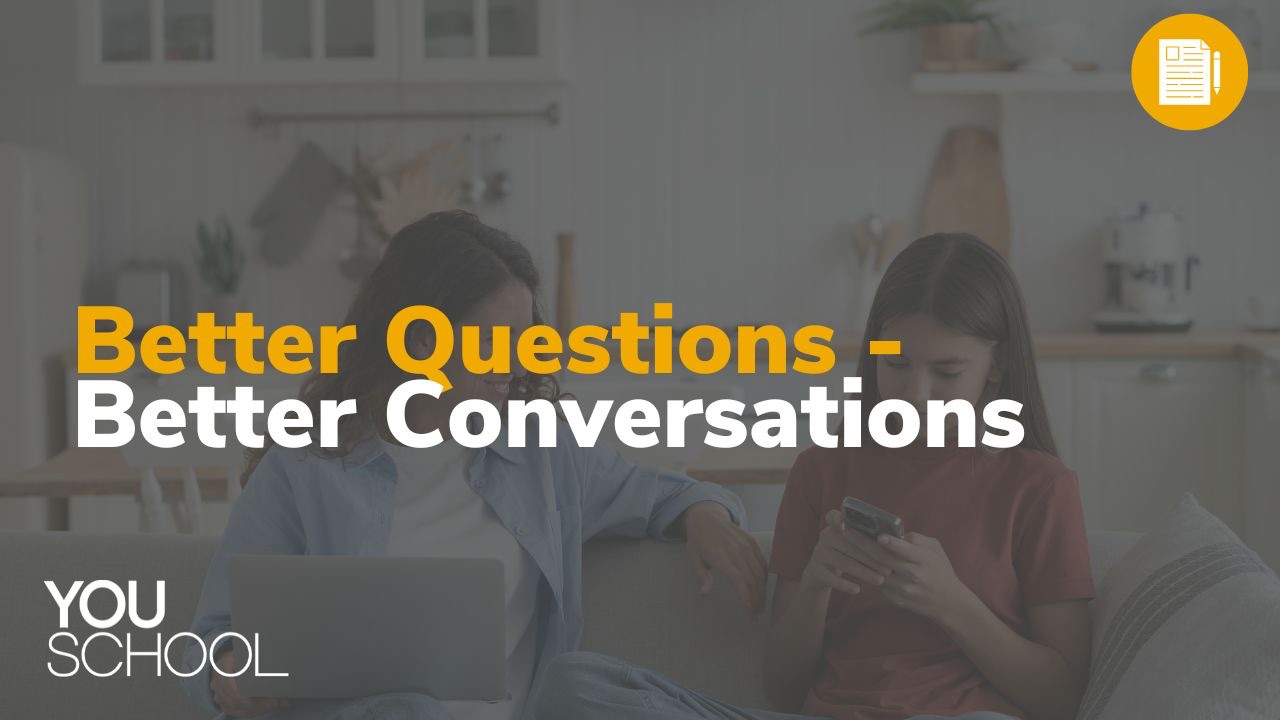How to Ask Better Questions to Have Better Conversations

Teenagers can be a bit prickly. Hello, understatement.
- You tell them dinner is ready (the dinner you prepared for them with their favorite foods), and you get yelled at.
- You awkwardly leave a work meeting a few minutes early and rush to pick them up on time, and they slam the car door with frustration that you were late to pick them up.
- You remind them to make their bed in the morning before leaving for school (again), and they scream at you that they never have time to do anything.
They’re starving. They’re tired. They hate their unfair teacher. They don’t want to get dressed to have lunch with Grandma. They drag their feet and take forever to get in the car to go to the orthodontist, and reminding them that you’ve spent over $6,000 for them to have straight teeth doesn’t seem to change their attitude.
Yeah, they can be prickly. Or call it rude, impolite, entitled, and disrespectful. Potato, potato.
It’s annoying, to say the least. We want to live in harmony with them. We want to be respected—don’t we deserve it? Underneath that, we want to connect with them. They’re the most important parts of our lives, after all. With fewer and fewer interactions and a deadline approaching when they leave our homes forever, the more important it is to maximize our time together.
So when we do get some time with them, like around the dinner table or in the car on the way home from school, it would be nice to engage in a little chit-chat. Maybe not a two-way conversation or a deep discussion, but at least you’d like to understand what’s going on in their lives. You used to spend almost every waking moment with them. You used to know all their friends and knew their teachers by their first names. But now, you’re not really sure what they’re doing all day.
So how come your attempts at conversations with your kids rarely goes well?
I don’t know about you, but when I try to have a conversation with someone, and they answer with one-word answers and an irritated tone of voice, I change tactics. I stop talking. I’m not getting paid to try to pry out information like an interrogation.
Sometimes, if I’m feeling irritable and can’t get my kids to talk, I get irritated. I might snap back quickly, like, “Geez, I pick you up from school, give you money for lunch, bend over backward to get you on time, then the least you can do is answer a couple of questions.”
Mostly, I feel rejected when I can’t get my kids to respond to me. Not too dissimilar from how I might feel if I was trying to talk to a friend or colleague and they shut me out. I feel ashamed for caring so much, awkward about my interaction, and generally humiliated.
Can you relate?
In next week’s article, I’ll share more about how to fix your interactions with your kids and some best practices for engaging in better conversations with them. Stay tuned!
Did you know we post new weekly YouTube episodes on essential tips and skills every parent needs to guide their kids to launch confidently into adulthood? Click here to subscribe.

